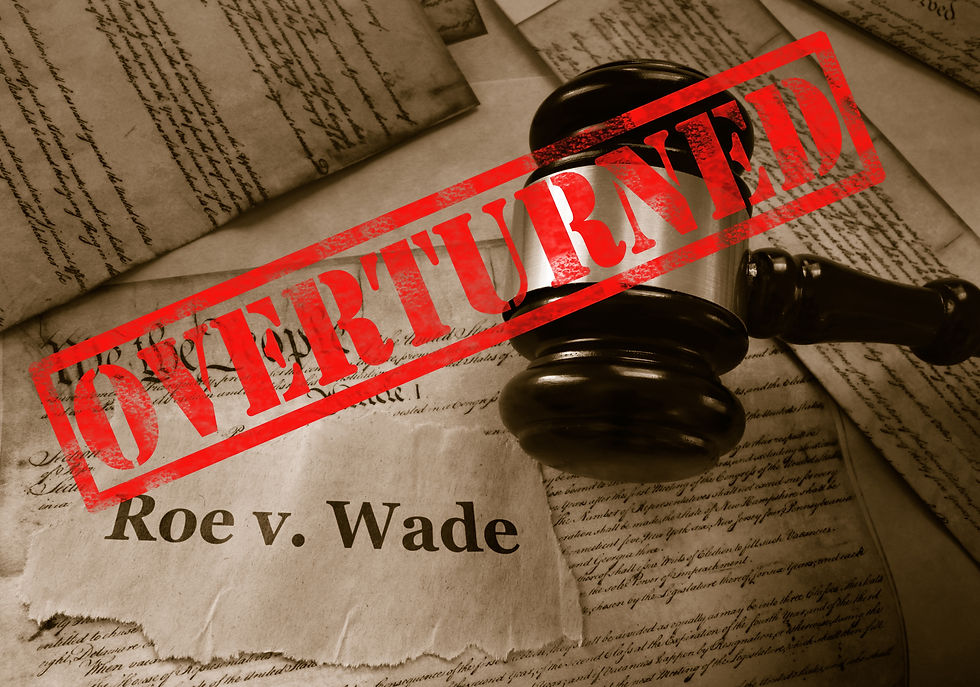Roe v. Wade: How to Navigate Conflicting Emotions
- Interval Health
- Sep 12, 2022
- 3 min read

The recent Supreme Court ruling that overturned Roe v. Wade has the entire country talking. For weeks following the decision, there were mass protests across the United States, and while some are for the overturning, others are adamantly against it.
This isn’t a political post, so no matter your position, it may be worth your while to keep reading. Even though it’s easy to get caught up in the moment and feel passionately one way or the other, there are many people who are trying to deal with conflicting emotions about the overturning of this decades-old law. You shouldn’t feel guilty for having those emotions or for trying to weigh out what they mean.
If you’re struggling to navigate those waters, you’re not alone. More importantly, you don’t have to feel like you’re drowning with nowhere to go as you try to work through your thoughts and feelings. Let’s take a look at how you can better navigate conflicting emotions.
Understanding Both Sides
Even if you have your own convictions about whether abortion should be legal, it’s nearly impossible to avoid hearing information and opinions from the “other side.” That can cause you to stop and think, and may pull at your emotions enough to cause you to question things, or even feel guilty. It might not change your opinion, and there’s nothing wrong with considering another perspective, but it’s also not easy.
You can navigate through those emotions of guilt or second-guessing by being an active listener. Recognize that it’s okay to listen to other views and have healthy conversations about them. If we all only stuck to our own thoughts and opinions without even considering the views of others, we’d constantly be at odds with each other. You don’t have to agree with someone else to understand where they’re coming from.
Recognizing the Fight Ahead
No matter which side you’re on with Roe v. Wade, the ruling by the Supreme Court really means it’s just the beginning for everyone in both belief systems.
If you’re happy about the overturning, you have little time to celebrate, knowing the decision is going to each state, and there could be consequences. Many women will travel across state lines to receive abortions. Others might not be able to receive the emergency medical attention they need if they have a high-risk pregnancy.
If you’re against the overturning, you might think the country has taken a step backward. You might be wondering what you can do to help women in need of an abortion or how you can help them feel safe. Maybe you even feel a little bit of both of these things.
First, choose to be mindful. There are so many “what ifs” and situations that might seem up in the air right now. But, focusing on those potential situations will only make you more anxious. Try to stay focused on the present, and choose to reach out to the people in your life who might be most directly affected by this ruling to see how you can help.
Working Through Your Emotions
Emotions will always demand to be felt. Don’t think you have to hide what you’re feeling. Don’t develop a sense of guilt over the fact that you’re conflicted. Talk to someone you trust about your emotions, and lean on your support system. Knowing they can provide a listening ear can make a big difference even if they don’t agree with you.
If you’re not comfortable talking with someone in your social circle, consider reaching out to a mental health professional. Talking to a therapist can help you sort through your emotions and what’s causing you to feel conflicted. A therapist can also help you develop strategies to manage those emotions.
--
If you’re struggling to navigate your conflicting emotions, don’t hesitate to set up an appointment.

Jennifer Perera is a mom of two boys, a spouse and a Licensed Clinical Social Worker. She is also Certified as a Perinatal Mental Health Professional by Postpartum Support International. She has a private practice in Springfield, New Jersey and also sees clients throughout New Jersey via telehealth. Her passion is helping new moms and dads find their joy again in parenthood through individual and couples counseling. She also runs workshops for new parents, teaching them techniques and strategies to help them have a stronger relationship - built to thrive during the parenthood years. Jennifer specializes in working with parents during the prenatal and postpartum periods and those coping with grief or loss issues surrounding pregnancy.

Comments